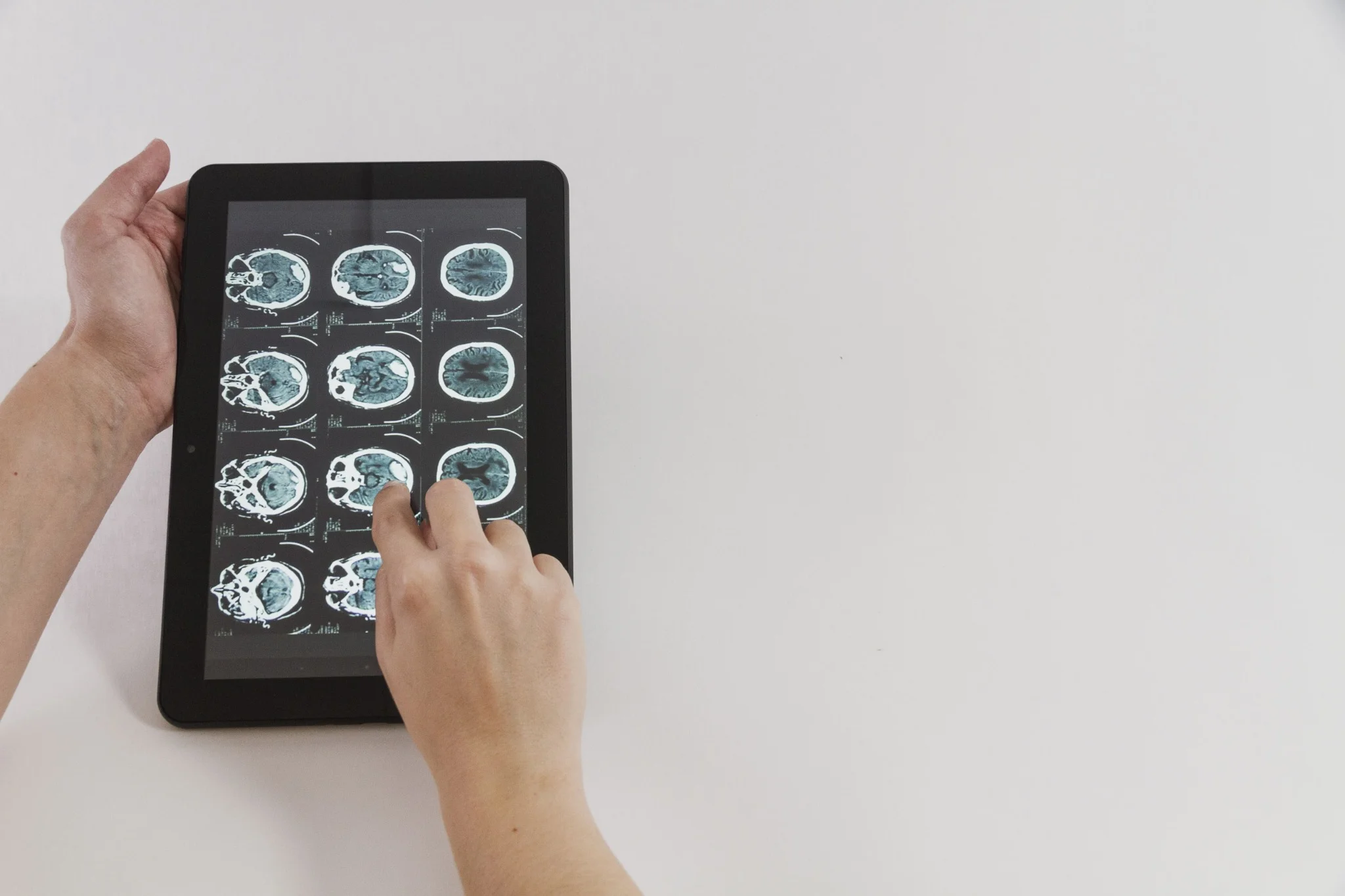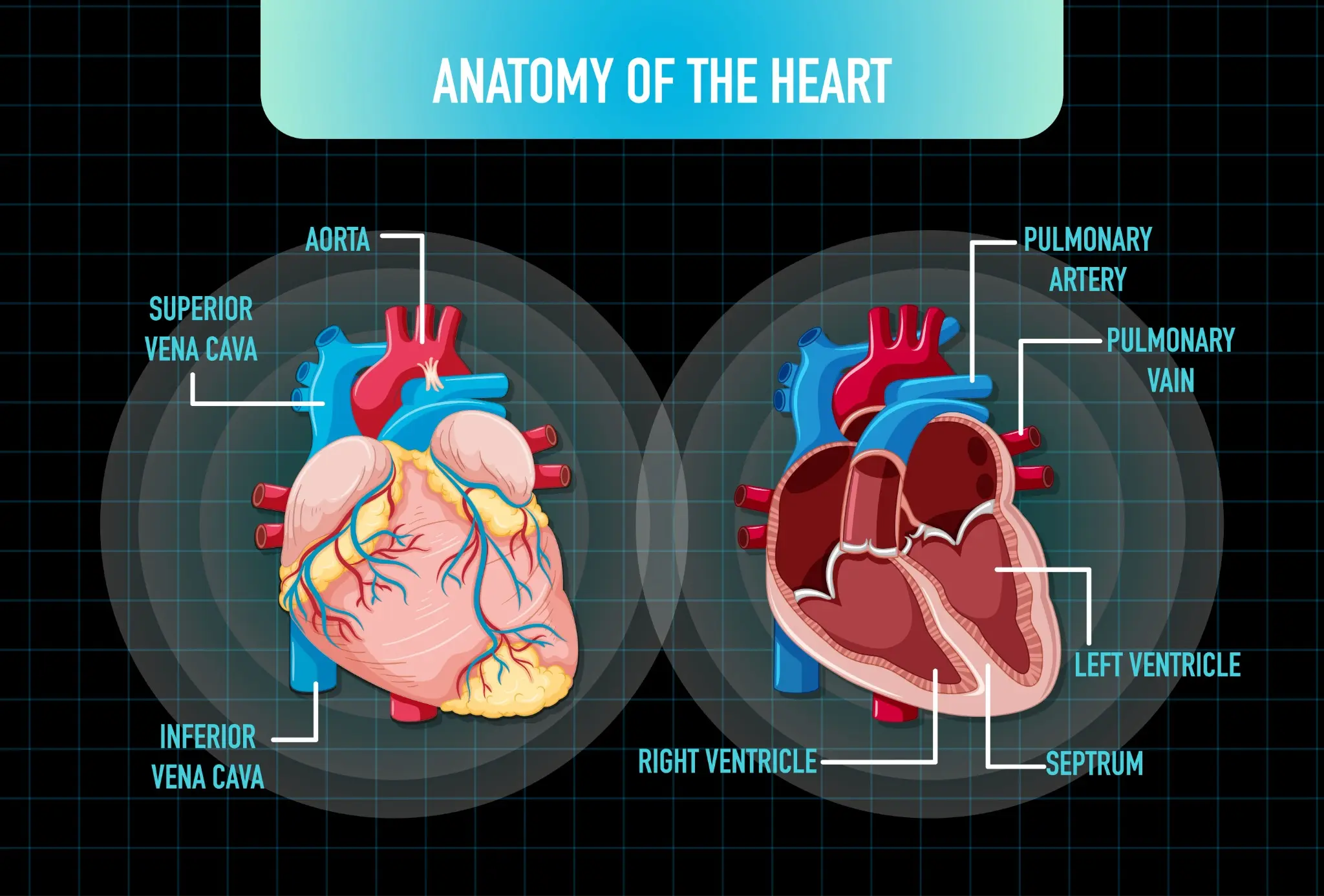Cardiac Screen-1
Cardiac Screen-1 Test Overview
The cardiac screen-1 test is a comprehensive panel of tests designed to evaluate heart function and identify risk factors for coronary artery disease. This screening includes several specific tests to measure various parameters related to heart health, providing valuable insights into an individual's cardiovascular well-being.
Cardiac screening is the practice of looking for potential heart-related illnesses. Screening is frequently carried out. This is done before the onset of symptoms to identify potential issues early.
Cardiac screening entails several tests. These tests can determine your risk of developing heart disease. They can also help spot the first indications of a problem. Heart screening is advantageous for everyone. But it is crucial if you have a high risk of developing heart disease.
What is a cardiac screen 1?
A Cardiac Screen-1 is a thorough panel. It consists of a few particular tests to measure the parameters that evaluate heart function and pinpoint risk factors for coronary artery disease.
Tests included are : Homocystiene, hscrp, troponin I high sensitive, apolipoprotiens, Lp-pla2, Lipid profile-2
CREATED BY : Dr.Shibani R Medical Writer, Medical Affairs
Reasons for Undergoing the Cardiac Screen-1 Test
There are several compelling reasons to consider undergoing the cardiac screen-1 test:
- Early Detection: The test helps identify potential heart-related illnesses before symptoms appear, allowing for timely intervention and management.
- Risk Assessment: It is particularly beneficial for individuals with a high risk of developing heart disease, such as those with a family history, smokers, or those with high blood pressure, diabetes, or high cholesterol.
- Prevention: By detecting risk factors early, the test enables the implementation of preventive measures and lifestyle changes to reduce the risk of severe cardiac events.
- Comprehensive Evaluation: The panel includes a wide range of parameters, providing a thorough assessment of heart health and function.
- Peace of Mind: Undergoing the test can offer reassurance and peace of mind, especially for those with concerns about their cardiovascular health.
List of Parameters Considered During the Cardiac Screen-1 Test
The cardiac screen-1 test evaluates heart health through key markers:
- Homocysteine & hsCRP: Indicate heart disease and inflammation risk
- Troponin I High Sensitive: Detects heart damage
- Apolipoproteins & Lp-PLA2: Assess cholesterol balance and artery inflammation
- Lipid Profile-2: Measures cholesterol and triglyceride levels
Cardiac Screen-1 Test Preparation
A minimum of 12 hours of fasting is typically required before the cardiac screen-1 test to ensure accurate results for lipid profiles and other parameters. Inform your doctor about any medications you are taking, especially those related to blood pressure or heart conditions, as they may need to be temporarily discontinued before the test.
Cardiac Screen-1 Test Results & Interpretation
The results of the cardiac screen-1 test provide valuable insights into various aspects of heart health.
- Normal Results: If all parameters fall within the normal range, it generally indicates a lower risk of heart disease.
- Abnormal Results: Elevated levels of homocysteine, hsCRP, troponin I, or abnormal lipid profiles may indicate an increased risk of heart disease. High levels of Lp-pla2 can also suggest inflammation in the arteries.
- Consultation with Doctor: It is crucial to discuss the test results with a healthcare provider to understand the implications and any necessary next steps, such as further testing or lifestyle changes.
- Interpretation of the cardiac screen-1 test results should always be done in the context of overall health and medical history, taking into account individual risk factors and circumstances.
Home Collection for Cardiac Screen-1 Test Near You
Metropolis Healthcare offers the convenience of home sample collection for the cardiac screen-1 test, ensuring a seamless and comfortable experience for patients. A trained phlebotomist will visit your doorstep to collect the necessary blood samples, maintaining the highest standards of safety, hygiene, and sample handling throughout the process. This service eliminates the need to visit a clinic or lab, making it easier for individuals to prioritise their heart health without compromising on the accuracy of the test results.
By opting for Metropolis Healthcare's home collection service, patients can expect timely and reliable results, empowering them to take proactive steps in managing their cardiovascular well-being.
Cardiac Screen-1 Price
Metropolis Healthcare is a leading diagnostics centre and pathology lab in India equipped with the latest state-of-the-art technologies that provides the Cardiac Screen-1 with a clear pricing structure.
The Cardiac Screen-1 Price in Ahmedabad is ₹ 6,660 .
We are committed to deliver accurate and quality results from the best labs in India with complete transparency regarding test cost and turnaround time. No matter where you are, we strive to offer patients high-quality service that is affordable and accessible.
Frequently Asked Questions
Cardiac profiles are performed to evaluate heart health and track coronary artery disease risk factors. These consist of the following:
1. Homocysteine
An example of an amino acid utilised to create proteins is homocysteine. The vitamins B12, B6, and folic acid aid in the breakdown of homocysteine. They also aid in its conversion to other compounds that your body need. The risk of developing cardiac problems rises when homocysteine levels are abnormal.
2. HsCRP
C-reactive protein, or HsCRP, is an acute phase reactant in inflammation. A high-sensitivity CRP test helps assess a person's risk of CVD, heart attacks, strokes, and health before one of these conditions arises.
3. Troponin
It is an increased cardiac marker found in people with acute myocardial infarction. A highly sensitive assay can identify elevated Troponin-I levels as early as three hours following the onset of chest discomfort.
4. Apolipoproteins
The test is recommended to determine how inflamed the blood vessels are. Compared to a routine cholesterol check, this provides a more thorough picture of the risk of developing heart disease.
5. Lp-pla2
It is an inflammatory biomarker specific to the vascular system. It indicates the likelihood of developing atherosclerotic cardiovascular disease (CVD). It is helpful in situations of early-stage cardiovascular disorders, hypercholesterolemia in the family, and blood vessel problems with normal triglycerides and total cholesterol levels.
6. Lipid profile 2
It is a series of tests. It gauges blood cholesterol levels and, by extension, the health of the heart's blood arteries.
The test measures specific amounts of homocysteine, HsCRP, troponin 1, apolipoproteins, and Lp-pla2. The lipid profile 2 parameters are also measured in addition to this.
If you are older than 40 or if you have any of the risk factors for heart disease, cardiac screening is incredibly crucial. There are several risk factors. Some of them are a family history of heart disease, being overweight, smoking, consuming large amounts of alcohol, living a sedentary lifestyle, or having a condition like high blood pressure.
Regular heart health exams and cardiac screenings should start at age 20. The majority of testing should be carried out every two to four years.
A blood sample is required for this test. On the upper arm, an elastic band is firmly fastened. A fist is then requested from the patient. This aids in the veins' filling up with blood. Before inserting the needle, the skin is cleaned. A vacutainer is used to collect the blood sample. In a sterile container, regular pee is collected.
- High Lp- PLA2 levels may indicate the necessity for more aggressive lipid-lowering medication.
- Low levels could indicate that Lp- PLA2 levels are not a factor in the development of cardiac disease.
- High levels of apo A may lower the risk of peripheral vascular illnesses, heart disease, and stroke.
- Low levels could make a stroke and heart attack more likely.
- Atherosclerosis is the thickening or blockage of the artery walls. It is caused by cholesterol buildup in the arterial walls due to high levels of apo B.
- Deficits in Apo-B, such as those seen in Tangier's disease or fish eye sickness, can also result in low levels.
- High homocysteine levels are a crucial indicator for determining the risk of coronary heart disease.
- A sensitive indicator of increased cardiovascular risk in both men and women is high HsCRP.
- Myocardial infarction is characterised by high troponin 1 level.
- Low HDL levels, and high total, LDL, and VLDL cholesterol increase heart disease risk.
Myocardial infarction is a serious medical emergency in which the heart muscle dies from a lack of blood flow. This typically results from a blockage in the arteries that carry blood to your heart. This is also referred to as a heart attack, which results in death and causes serious harm to other organs.
The coronary arteries, which carry blood to your heart, are impacted by coronary artery disease (CAD). One or more of your coronary arteries get blocked or progressively narrow with CAD.
The most frequent symptom is angina, which causes chest pain. A heart attack or other consequences like arrhythmia or heart failure can result from CAD.
- Heart Screening
- Homocysteine
- HsCRP
- Troponin I
- Apolipoproteins
- Lp-PLA2
- Lipid Profile-2
The cardiac screen-1 test is a comprehensive panel of tests that evaluates heart function and identifies risk factors for coronary artery disease. It includes several specific tests to measure various parameters related to heart health.
Yes, home sample collection is available for the cardiac screen-1 test through reputable diagnostic laboratories like Metropolis Healthcare. This service offers convenience and comfort for patients who prefer to have their blood samples collected at home.
The cardiac screen-1 test is used to identify potential heart-related illnesses, assess the risk of coronary artery disease, and detect early signs of heart problems before symptoms appear. It helps in the early detection and management of heart disease.
Normal ranges for the cardiac screen-1 test vary for each parameter. Generally, homocysteine should be less than 15 μmol/L, hsCRP less than 1 mg/L, and troponin I very low or undetectable. Optimal lipid profile values include total cholesterol < 200 mg/dL, HDL > 60 mg/dL, LDL < 100 mg/dL, and triglycerides < 150 mg/dL.
Anyone can undergo the cardiac screen-1 test, but it is particularly recommended for individuals at high risk of heart disease.
The benefits of the cardiac screen-1 test include early detection of heart disease, identification of risk factors, and the ability to initiate preventive measures and lifestyle changes to reduce the risk of severe cardiac events. By identifying potential issues early, patients can work with their healthcare providers to manage their heart health effectively.
Generally, a cardiac screen-1 test is recommended annually for those at high risk and every 3-5 years for others, as advised by your healthcare provider.
The cardiac screen-1 test can be done at any time, but typically, it is best to schedule it in the morning after an overnight fast.
Yes, typically a minimum of 12 hours of fasting is required before the cardiac screen-1 test.
Before undergoing the cardiac screen-1 test, it is important to avoid certain medications as advised by your doctor. Additionally, stay hydrated by drinking water, but avoid caffeine and other beverages prior to the test.
The parameters included in the cardiac screen-1 test are homocysteine, high-sensitivity C-reactive protein (hsCRP), troponin I high-sensitivity, apolipoproteins, lipoprotein-associated phospholipase A2 (Lp-pla2), and a comprehensive lipid profile.
The cardiac screen-1 test is performed by collecting a blood sample from a vein in your arm.
The cardiac screen-1 test should be done as part of a routine health check-up, especially for individuals at high risk of developing heart disease.
The cardiac screen-1 test becomes positive when one or more of the measured parameters fall outside the normal range. Elevated levels of homocysteine, hsCRP, troponin I, or abnormal lipid profiles may indicate an increased risk of heart disease.
The blood sample collection for the cardiac screen-1 test usually takes only a few minutes.
The reports for the cardiac screen-1 test are typically available within 24 to 72 hours based on the day/time when the sample was collected and processed. However, exact turnaround time may vary depending on the lab and specific tests included in the panel.
Ratings & Reviews (0)
Why Metropolis?
Metropolis has a team of 200 senior pathologists and over 2000 technicians delivering diagnostic solutions in the areas of routine, semi specialty and super specialty domains like Oncology, Neurology, Gynaecology, Nephrology and many more.
We offer a comprehensive range of 4000+ clinical laboratory tests and profiles, which are used for prediction, early detection, diagnostic screening, confirmation and/or monitoring of the disease.





















 WhatsApp
WhatsApp